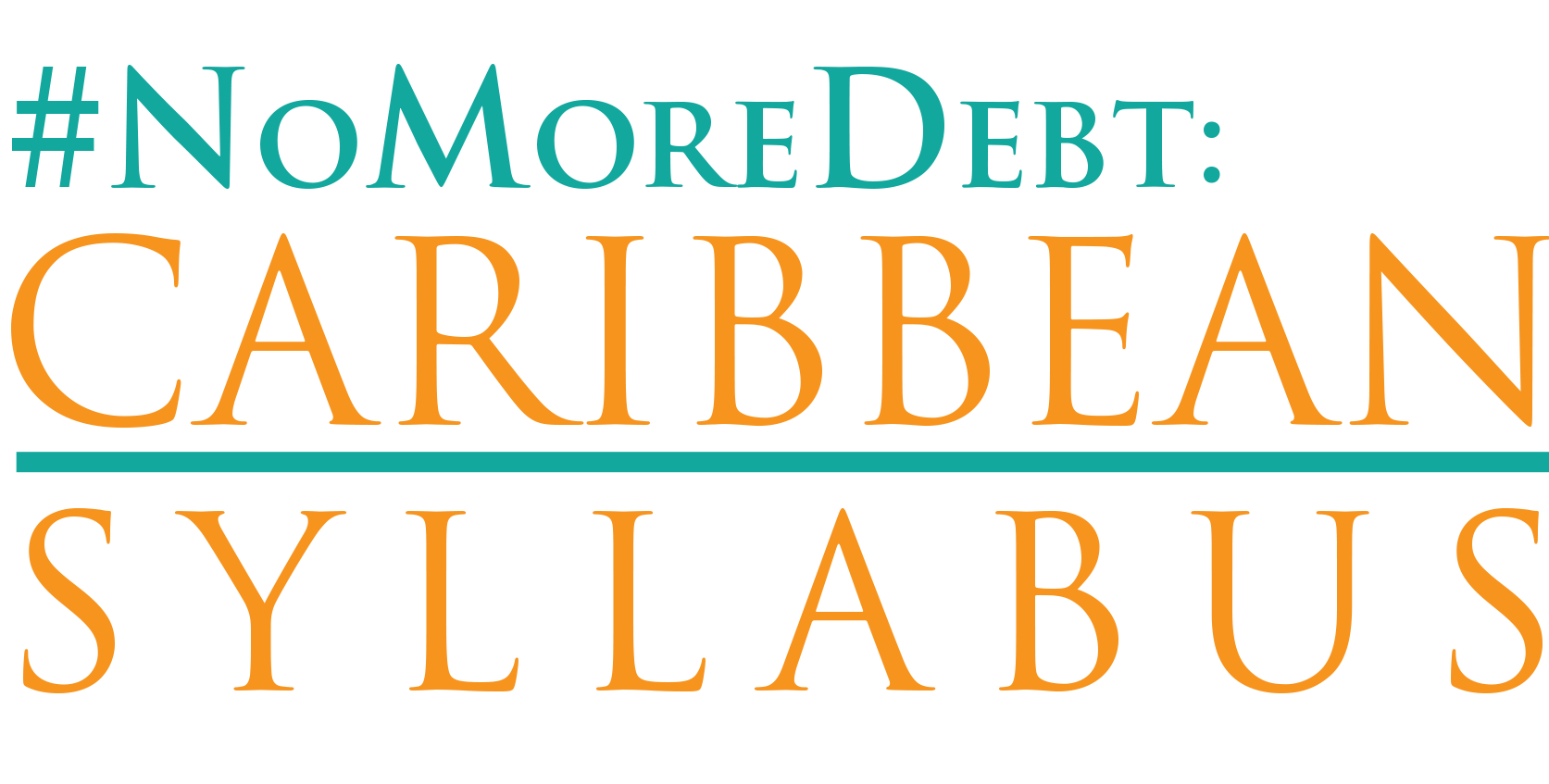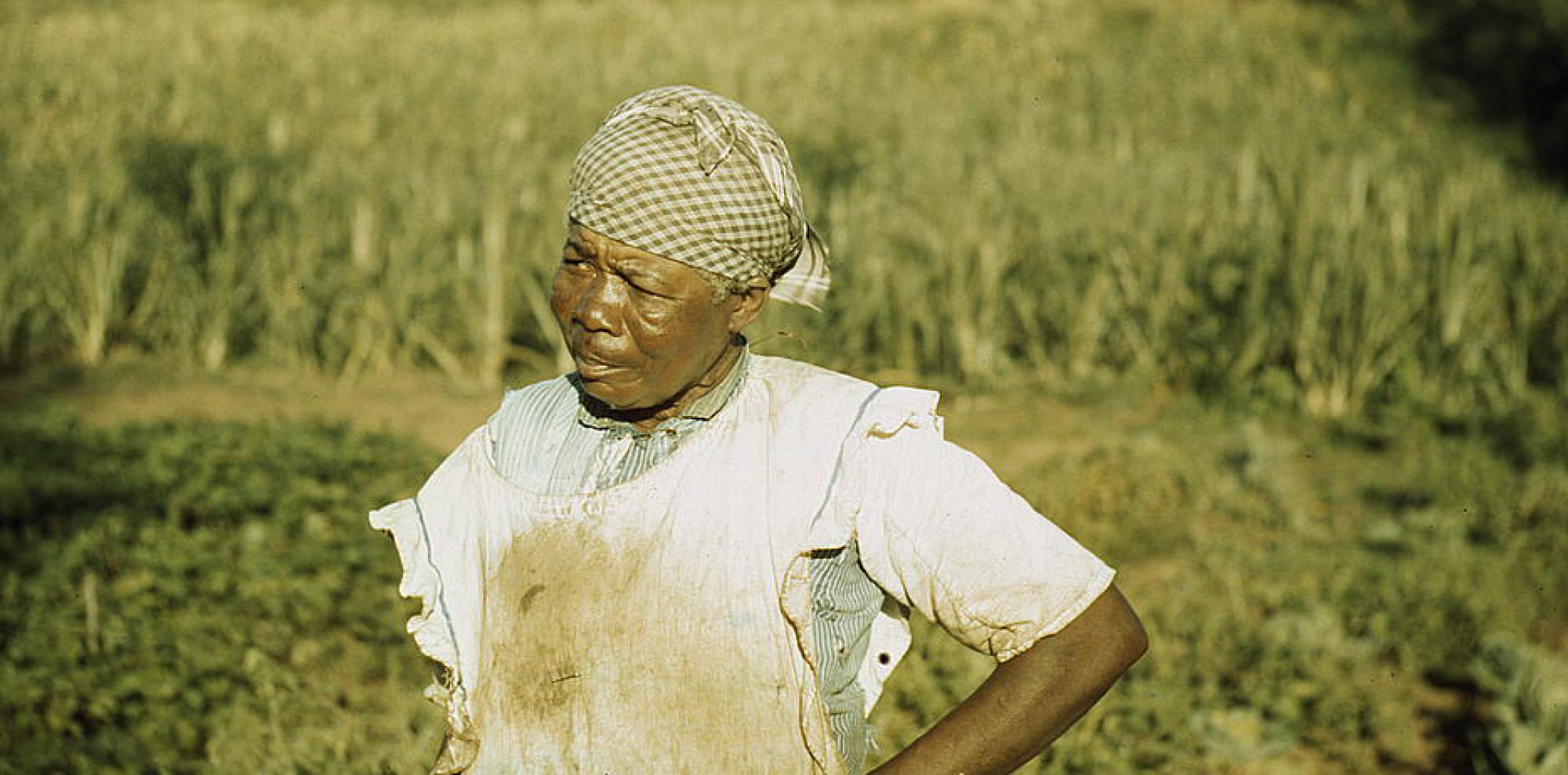PHOTO (DETAIL ABOVE) BY JACK DELANO. In her garden, Puerto Rico (1941)
In May of 2018, the Unpayable Debt Working Group, a project of the Center for the Study of Social Difference at Columbia University, released the first edition of Caribbean Syllabus: Life and Debt in the Caribbean. The most comprehensive available public resource on the topic, the syllabus stimulated considerable conversation among scholars, journalists, artists, activists, and others in the Caribbean and across the world.
As a result of those discussions, we created a second edition, #NoMoreDebt: Caribbean Syllabus, with additional information and three new sections created by innovative scholars working on indenture (Tao Goffe), law (Monica Jiménez), and education (Jason Wozniak). In an effort to widen the conversation, the second edition also contains translations of key syllabus sections to other important languages in the Caribbean, including Spanish, French, and Dutch.
There is a continued urgency for in-depth resources on Caribbean debt. As we noted in the introduction to the first edition, the Caribbean is among the most indebted regions in the world. That debt is the result of a complex, five centuries-long history of colonial-capitalist extraction that continues in the present but is being increasingly contested by a range of political actors. The outcome of this struggle—which is being fought across multiple fronts such as education, health, housing, migration, pensions, environment, and the demand for reparations and debt abolition—will greatly shape the future and well-being of both the Caribbean and other parts of the world.
The current syllabus is organized around four core questions: How did the Caribbean become indebted and how is that debt related to slavery, colonialism, and neocolonialism? Where is the past 500 years of wealth generated by the region’s natural resources and human labor? How are people in the Caribbean today cultivating an oppositional understanding of debt and working toward future horizons not defined by indebtedness and finance capitalism? Ultimately, the syllabus asks, given the Caribbean’s colonial past and present, “who owes what to whom”?
Overall, the syllabus contains 18 units. Each unit is organized around a specific theme and includes scholarly, journalistic, and primary resources as well as materials drawn from the arts and multimedia. This structure allows the document to be adopted for seminar teaching as well as for use outside of the classroom. As the working group envisions the syllabus as a living document, we will continue to add to it as new resources, interventions, and materials become available. We especially welcome suggestions for materials in languages other than English.
Lastly, #NoMoreDebt: Caribbean Syllabus is the second in a series of three syllabi that the Unpayable Debt Working Group is producing. The first was the PRSyllabus, published in 2017 and focusing on the Puerto Rican debt crisis. The last syllabus will consider debt regimes in a global context and will be released in 2019.

